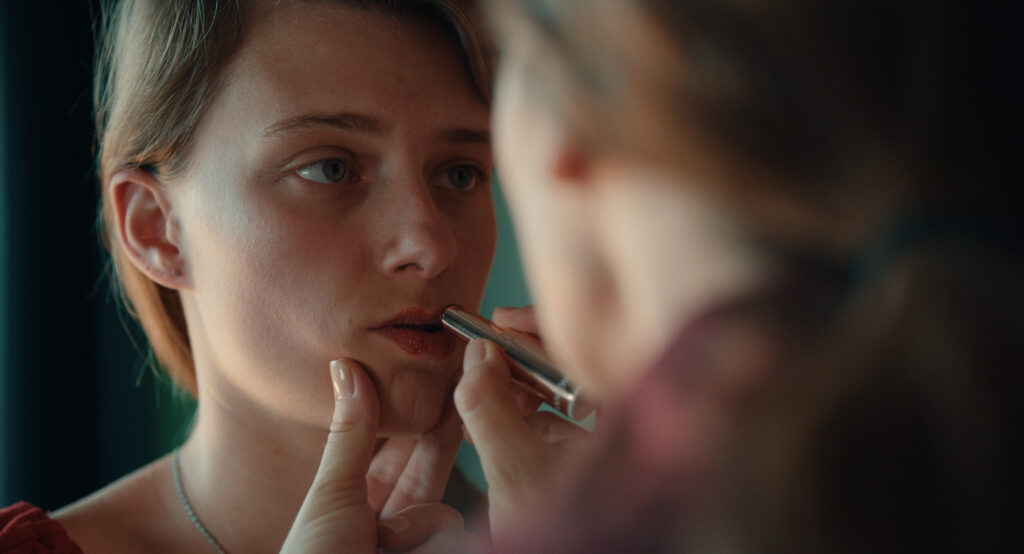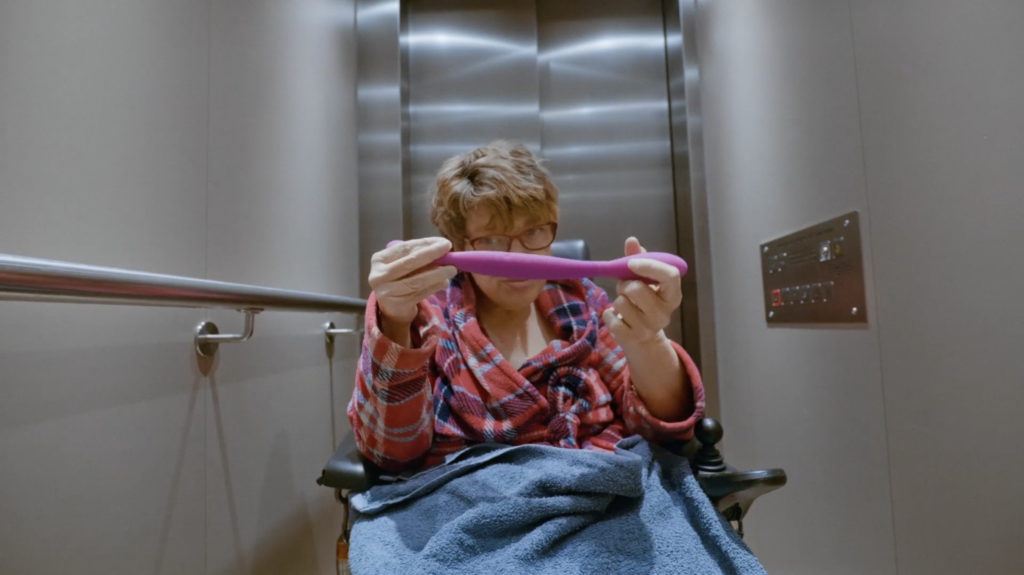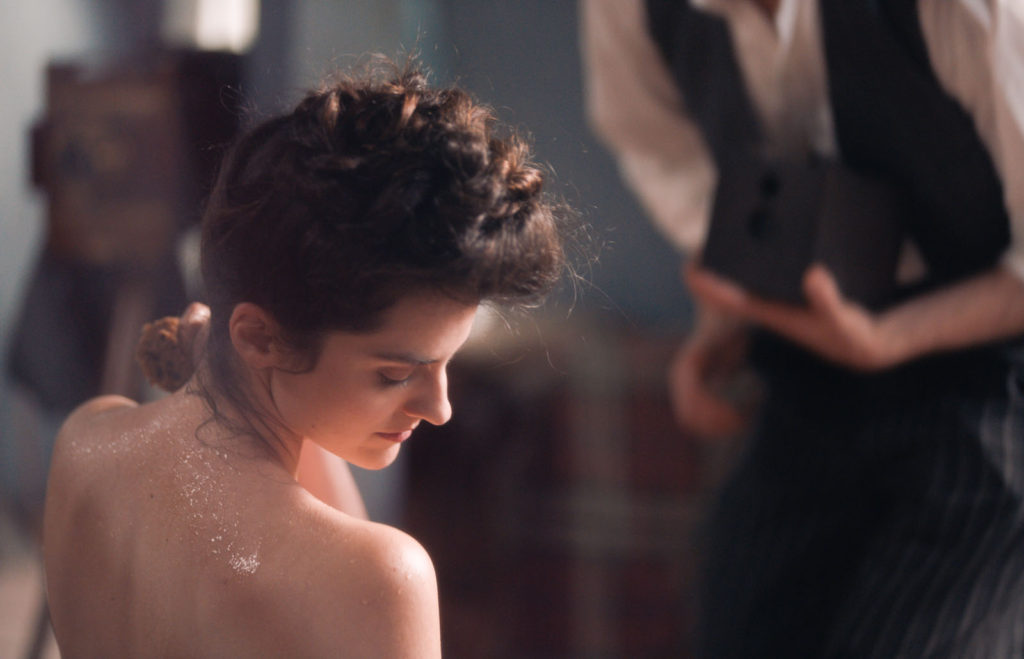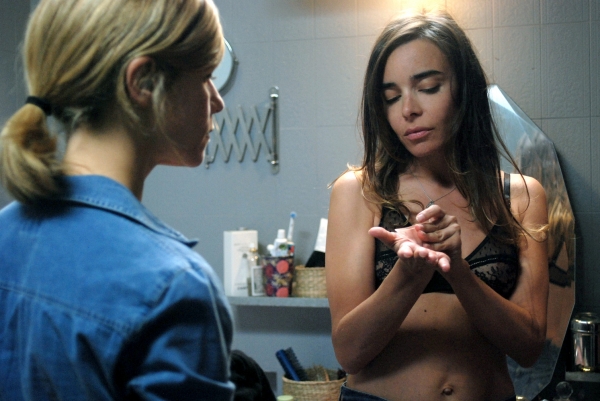
Kaymak follows the relationships of two couples in the same apartment building in teeming Skopje, North Macedonia. Eva (Kamka Tocinovski), a rich banker, lives in the penthouse with her husband Metodi (Filip Trajkovic), who wants a child; Eva, not a candidate for Mother of Year, doesn’t want her life disrupted by the bother of pregnancy and childbirth, so she plucks a young relative, Dosta (Sara Klimoska), from the countryside to serve as a surrogate. Dosta is developmentally disabled and lives with her family in an impoverished, backward village. Soon, Eva and Metodi are getting more than they expected and more than they can handle.
The other couple lives in a modest ground floor apartment. Caramba (Aleksandar Mikic ) is a goofy security guard; Danche (Simona Spirovska) is always exhausted from pulling double shifts at a bakery. Day to day drudgery has drained their relationship of passion, and Caramba is always on Danche’s very last nerve. When Caramba meets the comely and oversexed cheese vendor Violetka (Ana Stojanovska), their lives, too, are upended.
The characters have lots of sex, both joyously kinky and cringingly transgressive. It gets very funny, and Manchevski even drops in a delicious nod to the Spaghetti Westerns of Sergio Leone.

However, Manchevski imbues Kaymak with more meaning than a mere sex romp, exploring both the imperative to parent and the elastic strictures of of monogamy. There’s tragedy (and apparent tragedy) here, amid all the absurdity. Manchevski told A Good Movie to Watch, “People usually want their films to have a consistent and predictable tone. Now, my preference as a film viewer, but also as a filmmaker, is more adventurous. I don’t mind disruption. On the contrary, I cherish it.“
All the characters, rich or not, enjoy kaymak, a versatile creamy milk reduction used in the Balkans as an appetizer, a condiment and a fast food breakfast.
Manchevski was Oscar-nominated for his acclaimed 1994 Macedonian feature Before the Rain. That Manchevski debut won the Golden Lion at Venice and was singled out as a masterpiece by Roger Ebert and The New York Times. Since then, Manchevski has been teaching in New York and directed an episode of The Wire.
Kaymak is his third film to play Cinequest, after Bikini Moon, my choice as the best film of the 2017 Cinequest, and Willow, a triptych that plumbs the heartaches and joys of having children. Kaymak is the raunchiest and most overtly comedic of the Manchevski films I’ve seen
The performances in Kaymak are all excellent. (Klimoska bears a passing resemblance to Kristin Stewart.)
Cinequest is hosting the US premiere of Kaymak. Find the trailer on the Cinequest Kaymak page.




